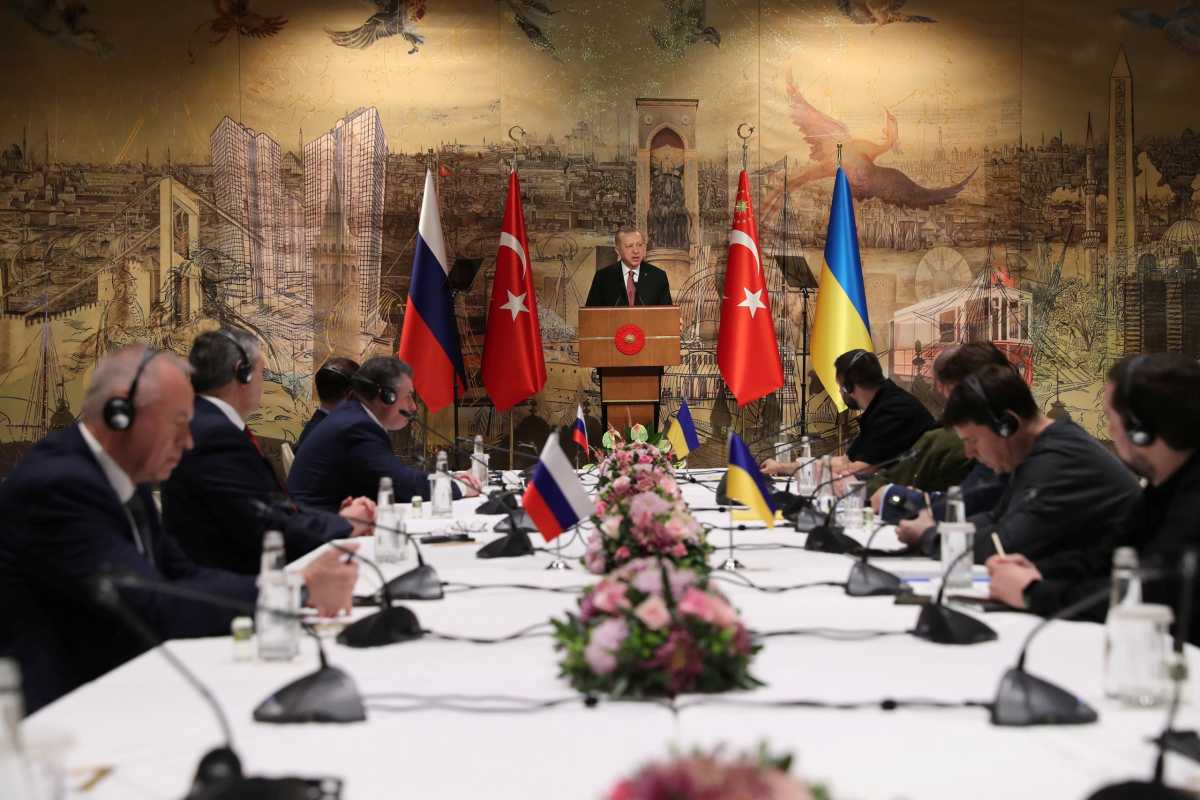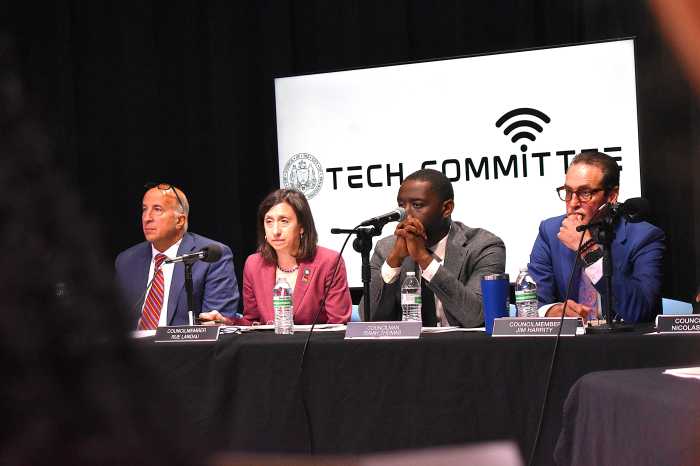By Jonathan Spicer and Gleb Garanich
Russia promised on Tuesday to scale down military operations around Kyiv and another city but the United States warned the threat was not over as Ukraine proposed adopting a neutral status in a sign of progress at face-to-face negotiations.
Talks took place in an Istanbul palace more than a month into the largest attack on a European nation since World War II that has killed or injured thousands, forced nearly 4 million to flee abroad and pummeled Russia’s economy with sanctions.
Russia’s invasion has been halted on most fronts by stiff resistance from Ukrainian forces who have recaptured territory even as civilians are trapped in besieged cities.
“A decision was made to radically, by a large margin, reduce military activity in the Kyiv and Chernihiv directions,” Russian Deputy Defence Minister Alexander Fomin told reporters on Tuesday.
He made no mention of other areas that have seen heavy fighting, including around Mariupol in the southeast, Sumy and Kharkiv in the east and Kherson and Mykolaiv in the south.
Russia has started moving very small numbers of troops away from positions around Kyiv in a move that is more of a repositioning than a retreat or a withdrawal from the war, the Pentagon said on Tuesday.
“It does not mean that the threat to Kyiv is over,” spokesman John Kirby told a news briefing.
A total of 10 U.S. F-18 aircraft and more than 200 troops are being deployed to NATO member and Russian neighbor, Lithuania, and U.S. troops in Poland are “liaising” with Ukrainian forces as they hand over weapons to them, he added.
Russia calls its assault a “special operation” to disarm and “denazify” Ukraine. The West says it launched an unprovoked invasion.
Some analysts noted that Russia’s promise to reduce fighting mostly covered areas where it has been losing ground.
“Does ‘we’ll drastically reduce military operations around Kyiv’ = ‘we’re getting our a** kicked, transitioned to a hasty defense?'” tweeted Mark Hertling, a retired U.S. lieutenant general and former commander of U.S. forces in Europe.
Ukraine’s President Volodymyr Zelenskiy said only a concrete result from the talks can be trusted.
“We can say the signals we are receiving from the talks are positive but they do not drown out the explosions of Russian shells,” he said.
Ukrainian negotiators said that under their proposals, Kyiv would agree not to join alliances or host bases of foreign troops, but would have security guaranteed in terms similar to “Article 5”, the collective defense clause of the transatlantic NATO military alliance.
They named Israel and NATO members Canada, Poland and Turkey as countries that may give such guarantees. Russia, the United States, Britain, Germany and Italy could also be involved.
The proposals, which would require a referendum in Ukraine, mentioned a 15-year consultation period on the status of Crimea, annexed by Russia in 2014.
The fate of the southeastern Donbas region, which Russia demands Ukraine cede to separatists, would be discussed by the Ukrainian and Russian leaders.
Kyiv’s proposals also included one that Moscow would not oppose Ukraine joining the European Union, Russia’s lead negotiator Vladimir Medinsky said. Russia has previously opposed Ukrainian membership of the EU and especially of NATO.
Medinsky said Russia’s delegation would study and present the proposals to President Vladimir Putin.
To prepare a peace agreement, Medinsky later told the TASS news agency, “we still have a long way to go”.
U.S. President Joe Biden spoke by phone about Ukraine with the leaders of Britain, France, Germany and Italy.
A source familiar with the situation told Reuters the allies discussed more financial aid of up to $500 million for Ukraine.
Reuters






























